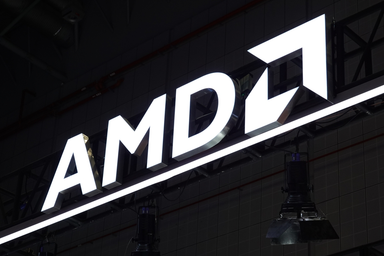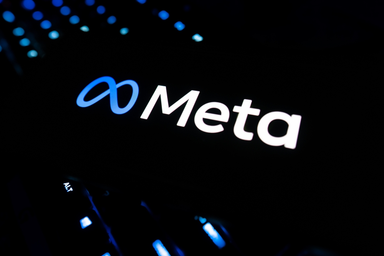Featured articles

DAX 40 continues to push to new highs
The DAX 40 sees six consecutive days of gains as the index pushes to new highs driven by risk-on sentiment
09:54, 12 January 2026

From Caracas to Wall Street: how the U.S.–Venezuela crisis could move markets
The start of the new year has marked a dramatic escalation in the United States’ confrontation with Venezuela.
08:53, 9 January 2026

Intel stock split: what it means for traders
Intel’s long history of stock splits reflects the company’s evolution through several major technology cycles, from early PC growth to data-centric expansion. With its most recent split taking place more than two decades ago, questions often arise about whether Intel may adjust its share structure again.
15:49, 19 December 2025

Microsoft stock forecast: Q2 revenue up 17%, Azure +39%
Microsoft is a US-listed technology company focused on cloud, enterprise software and AI, reporting 17% year-on-year revenue growth in fiscal Q2 2026, with Azure up 39% and Copilot seats at 15 million. Past performance is not a reliable indicator of future results.
54 minutes ago

BioNTech stock forecast: mRNA patent dispute & Q4 results
BioNTech is a Germany-based biotechnology company developing mRNA vaccines and cancer therapies, currently in focus ahead of its 10 March 2026 results and a US patent case against Moderna. Explore third-party BNTX price targets and technical analysis.
59 minutes ago

AMD stock forecast: Meta partnership & Q4 results
Advanced Micro Devices is a US semiconductor company supplying AI and data-centre chips, recently reporting $10.27bn in Q4 2025 revenue and announcing a multi-year GPU deployment agreement with Meta Platforms. Explore third-party Advanced Micro Devices price targets and technical analysis.
an hour ago

Meta Platforms stock forecast: Q4 results and AI capex plans
Meta Platforms is a US-listed technology company whose shares are trading following Q4 2025 results, a new AI infrastructure partnership with NVIDIA, and guidance for higher 2026 capital expenditure. Explore third-party META price targets and technical analysis.
an hour ago

NVIDIA ignites risk appetite as markets close the week on a stronger footing
NVIDIA's strong results drive sentiment higher as investors had began to doubt the AI narrative.
11:43, 26 February 2026

Market Mondays: Markets Rattled as Tariff Uncertainty Returns
Markets digest the latest ruling on Trump's tariffs and how the administration may look for other avenues to impose higher duties.
11:32, 23 February 2026

Trading the Dow 30 as Tariff Uncertainty Returns
Red in the futures market sees contained retreat continuing to test its shorter-term technicals, while in sentiment there’s been a shift to net short among CoT speculators.
08:09, 23 February 2026

Cooling but not cracking: The UK’s delicate economic balance
The UK economy is showing signs of fatigue with minimal growth and a slowing labour market, but inflation still remains above target.
10:38, 18 February 2026

NVIDIA ignites risk appetite as markets close the week on a stronger footing
NVIDIA's strong results drive sentiment higher as investors had began to doubt the AI narrative.
11:43, 26 February 2026

Market Mondays: Markets Rattled as Tariff Uncertainty Returns
Markets digest the latest ruling on Trump's tariffs and how the administration may look for other avenues to impose higher duties.
11:32, 23 February 2026

Oil Climbs as Geopolitical Risk Returns
Oil prices rise as markets price in a higher chance that the escalating conflict between Iran and the US could cause supply disruption.
11:26, 19 February 2026

Market Mondays: Volatility Dominates as Precious Metals Lead the Narrative
Markets trade with caution after the recent volatility as traders await the latest employment and inflation data from the US.
11:36, 9 February 2026

EUR/JPY forecast: Latest PMI & CPI release
EUR/JPY represents the exchange rate between the euro and the Japanese yen, reflecting relative economic performance, central bank policy expectations and shifts in global capital flows. Explore third-party EUR/JPY forecasts and technical analysis.
5 hours ago

NVIDIA ignites risk appetite as markets close the week on a stronger footing
NVIDIA's strong results drive sentiment higher as investors had began to doubt the AI narrative.
11:43, 26 February 2026

Market Mondays: Markets Rattled as Tariff Uncertainty Returns
Markets digest the latest ruling on Trump's tariffs and how the administration may look for other avenues to impose higher duties.
11:32, 23 February 2026

Cooling but not cracking: The UK’s delicate economic balance
The UK economy is showing signs of fatigue with minimal growth and a slowing labour market, but inflation still remains above target.
10:38, 18 February 2026

Zcash price prediction: Third-party outlook
Zcash (ZEC) is a decentralised cryptocurrency launched in 2016, designed to offer optional transaction privacy, and it trades on major crypto exchanges against the US dollar and other digital assets. Explore third-party ZEC price targets and technical analysis.
12:08, 18 February 2026

Pi Network price prediction: Third-party outlook
Explore third-party PI price targets and technical analysis.
11:35, 18 February 2026

BitTorrent price prediction: Third-party outlook
BitTorrent (BTT) is a crypto token associated with the BitTorrent protocol and the Tron blockchain, trading at fractions of a US dollar within a market shaped by liquidity, regulation and broader crypto trends. Explore third-party BTT price targets and technical analysis.
12:25, 17 February 2026

Fartcoin price prediction: Third-party outlook
Fartcoin (FARTCOIN) is a Solana-based cryptocurrency that trades on digital asset exchanges and has recorded notable price volatility since launch, reflecting shifts in liquidity and broader crypto market conditions. Explore third-party FARTCOIN price targets and technical analysis.
11:08, 17 February 2026
